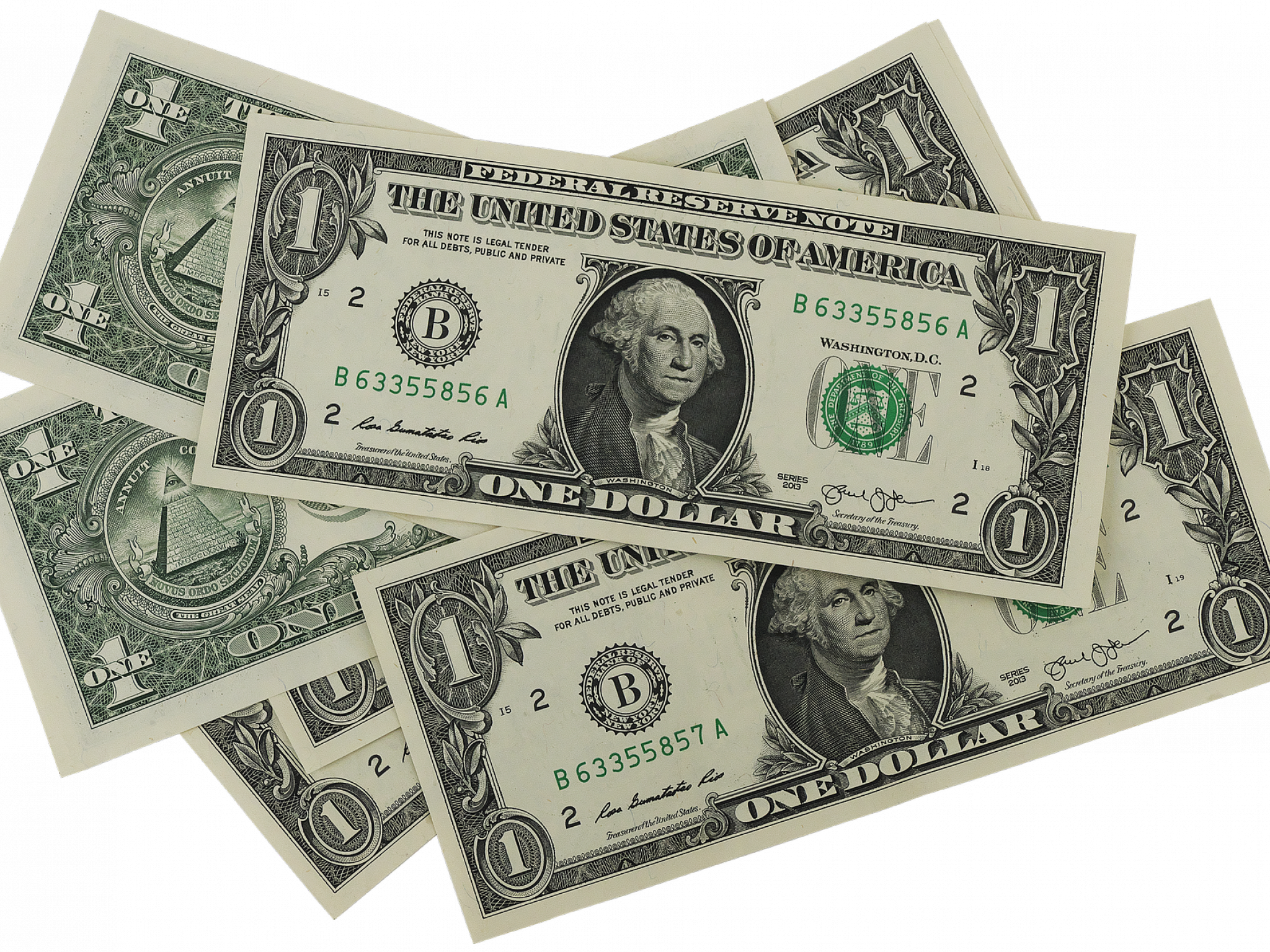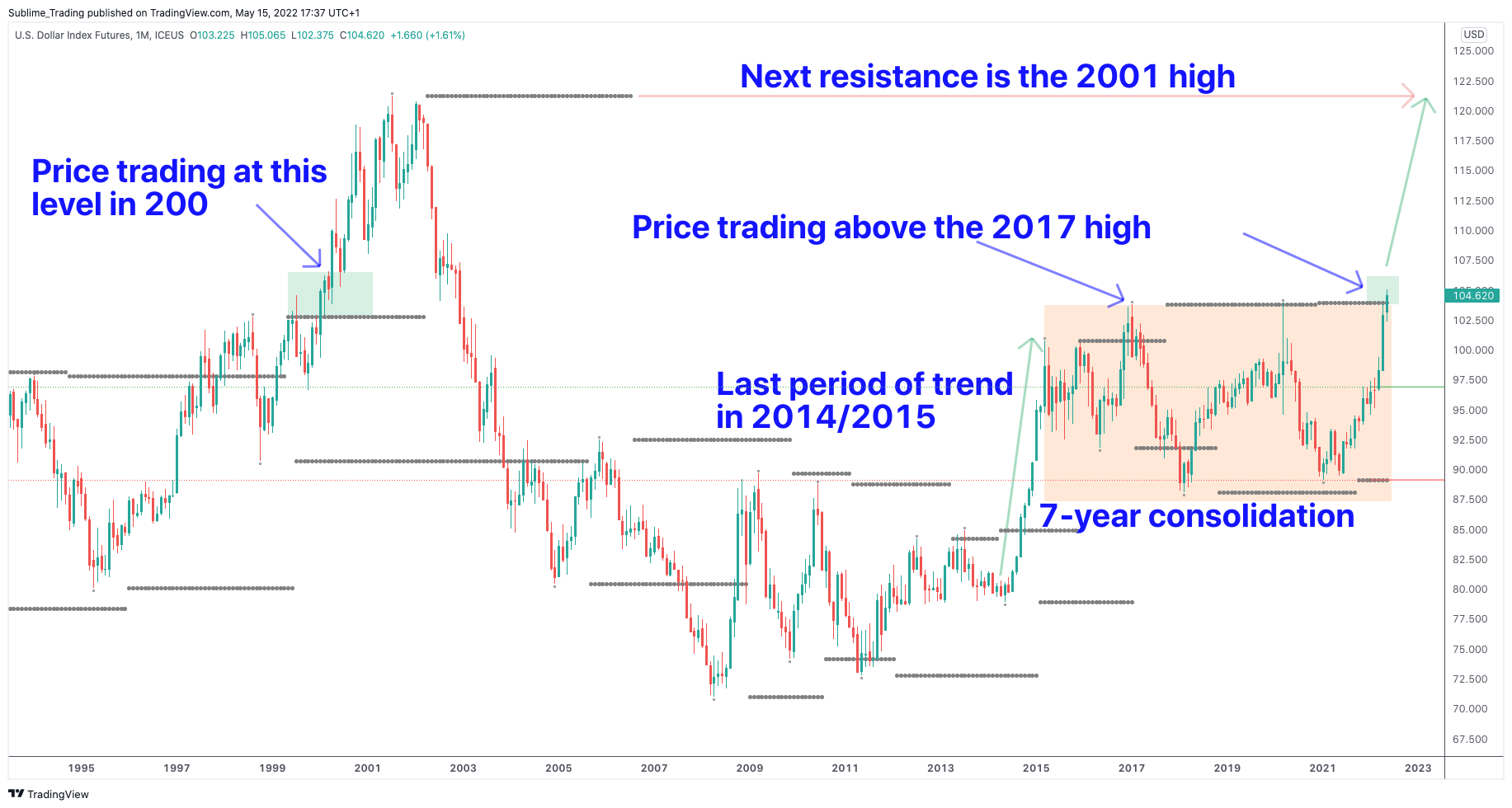
Let's start with a brief history.
The U.S Federal Reserve established The Dollar Index, nicknamed the Dixie, in March 1973 soon after the dismantling of the Bretton Woods Agreement. At its start, the base value was 100 and values since then are relative to the base.
It is now maintained by ICE Data Indices, a subsidiary of the Intercontinental Exchange (ICE).
The calculation behind the Dixie is a basket of the exchange rate of six currencies:
- The Euro (EUR) makes up 57.6% of the basket.
- The Yen (JPY) with a weighting of 13.6%.
- The Cable (GBP) at 11.9%
- The Loonie (CAD) at 9.1%.
- The Swedish Krona (SEK) at 4.2%.
- The Swissy (CHF) at 3.6%.
These six currencies included in the Dixie are generally referred to as America's most significant trading partners. The index has only been updated once: in 1999, when the Euro replaced the German mark, French franc, Italian lira, Dutch guilder and Belgian franc.
The value of the index is a fair indication of the Dixie's value in global markets.
Let's look at the technicals as the price is showing early signs of movement not seen since 2000.
Below is the Dixie's monthly time frame.
The price has been trading inside a range since 2015. Recent price action has seen the price move 18% from $90 in January 2021 to $105 as of Friday. This is the first time we have seen the price hit this level in a bull run since 2000.

What does this mean for investors?
This move out of consolidation could be significant for investors. We may be seeing the early signs of further strength toward the 2001 high at $122.
If this happens, we will then see the emergence of trends across the major dollar pairs: the AUDUSD, EURUSD, GBPUSD, NZDUSD, USDCAD, UDCHF and the USDJPY. The minor pairs of the USDSEK and the USDDKK will also look attractive.
The last time we saw sustained trends in the dollar pairs was back in 2014-2015. We are due a profitable period.
What is my current stance?
First of all, I don't trade The Dollar Index. I prefer to use it as an indicator of market conditions and then add the currency pairs that show the most potential into my portfolio. It is how I use The S&P 500 for the stock market and Bitcoin for cryptocurrencies.
Looking at these recent moves, it is tempting to jump into opportunities when we see impulsive moves, but this will leave you open to fake breakouts. This can often happen when the price first breaks out of a long-term area of consolidation, which will lead to losses. Applying patience will help avoid this.
For now, I continue to monitor the markets. Once the Dixie has confirmed further strength to the upside, I will then start adding the currency pairs with the best setups into my portfolio.
I will make up for lost time through strategically compounding as the trend develops.
Has this beast of a market finally woken up? Only time will tell.
In my future articles, I will take an in depth look at the major currency pairs mentioned above.







